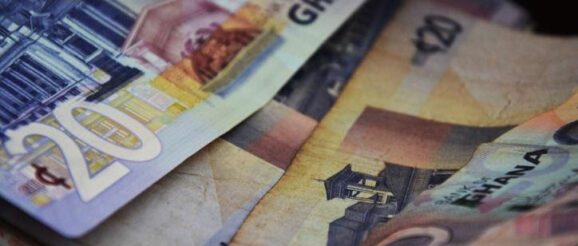How financial innovation is moving the global money movement in Ghana | News Ghana

Byline by Darryl Pietersen, Director Anglophone Africa, WorldRemit
ACCRA, Ghana, 19 January 2023 /African Media Agency/– Innovation is a crucial driver of economic development in Ghana, and over the past few years, adopting disruptive technologies has accelerated rapidly. The country continues to be a digital leader in Africa, and according to the Global Innovation Index (GII), it ranks 5th in Sub–Saharan Africa.
In Ghana’s financial sector, there have been recent government and private sector initiatives such as The Cash Lite Roadmap and The Digital Financial Services Policy that aim to adopt new technologies providing financial access to millions who have previously lacked access.
In 2022, The World Bank approved $200 million to aid in increasing Ghana’s mobile internet access and broadband services – providing support to over six million people in the lower-income demographic. The Ghana Digital Acceleration project is set to enhance the efficiency and quality of selected digital public services in Ghana. Thus, strengthening the digital innovation ecosystem and aid in creating better economic opportunities.
Despite the progress, several challenges persist as most of Ghana’s infrastructure is concentrated in urban areas, with large sections of the country’s rural population without effective mobile coverage.
Understanding financial innovation
Financial innovation is paving the way for new financial products, services and operations, and transforming how consumers can understand their finances. It has enabled Ghanaians to change how they save, borrow, invest, and pay for goods and services. Today, financial innovation has come through advances in technology, and payment systems, increasing the number of financial providers available to consumers and businesses – as a result, the fees customers are faced with are more competitive and consumers have more choices in the provider they wish to use.
In 2022, The Bank of Ghana (BoG) introduced the Central Bank Digital Currency (CBDC), which aims at promoting financial inclusion and complements the digital payment industry. It is currently being piloted in rural areas with limited internet access to ensure a countrywide robust and inclusive financial sector is available to all.
The BoG’s introduction of E – Cedi aims to encourage the Ghanaian digital payment and financial services industry, especially in financial inclusion, promoting cross-border payments and helping people reach their financial goals.
Mobile banking in Ghana
Today, mobile money has been a revolutionary tool for expanding access to financial services in disadvantaged areas with many banks in Ghana offering comprehensive apps with options to deposit checks, pay for merchandise, transfer money to a friend, or find an ATM instantly. As always, It is still important for customers to establish a secure connection before logging into any banking app to avoid their personal information being compromised.
Ghana has become one of the fastest-growing mobile banking markets in Africa. As of 2022, almost half (38.9%) of consumers aged 15 and older had a mobile money account in Ghana.
A recent study by The Abdul Latif Jameel Poverty Lab showed that households can better respond to unforeseen difficulties when they have access to mobile money and can facilitate higher savings for households.
Importance of remittances
As of 1 June 2022, WorldRemit users globally sent more than GBP 145 million back home to Ghana, boosting economic development and improving the lives of many families.
The rise of global remittance players such as WorldRemit in Ghana, and the advancement of digital transactions and innovations, have continued to provide a safe and secure money transfer system. Using blockchain technology in the remittance industry has important social benefits, as it could lower costs for customers. This is possible as the technology uses encrypted distributed ledgers to enable reliable and real–time transactions verification without the use of third parties.
The lower costs are in line with the Sustainable Development Goals (SDG) of the World Bank to reduce the cost of remittances from 7% to 3% by 2030.
To learn more about remittances and mobile money options in Ghana, visit: https://www.worldremit.com/en/ghana/faq/cash-pickup
